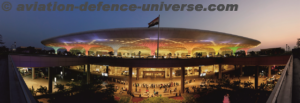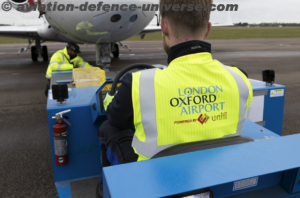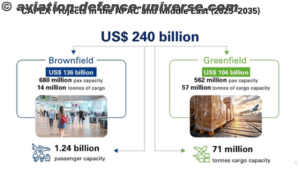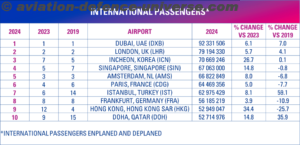- Terminal 2 began operations with welcoming 12 million passengers in its first year, escalating boldly to 31 million in 2023, witnessing a whopping 158% surge overall.
- Dubai, London, Abu Dhabi, Singapore, and Bangkok have been a preferred destination for India since the last 10 years from Mumbai.
- The average daily flights increased from 410 to 640 in the last decade.
- CSMIA has recorded a robust compound annual growth rate (CAGR) of 11% in passenger traffic, reflecting a consistent year-on-year growth.
- The total baggage handled in the month of January 2024, averages to more than 1Lac per day.
 Mumbai. 13 February 2024. Mumbai’s Chhatrapati Shivaji Maharaj International Airport (CSMIA) commemorates the remarkable journey of its Terminal 2, celebrating a decade of exceptional service, innovation, and operational excellence. Since its inauguration on 12th February 2014, Terminal 2 has emerged as a pivotal hub for Indian aviation, continually setting higher standards in operational excellence and passenger experience. On occasion of the 10th anniversary of Terminal 2, CSMIA aims to cultivate a landscape of digital empowerment within the aviation industry. This involves harnessing cutting-edge technologies, notably AI, MLOP & IoT, to boost operational efficiency, enhance passenger experiences, and establish a seamless airport ecosystem.
Mumbai. 13 February 2024. Mumbai’s Chhatrapati Shivaji Maharaj International Airport (CSMIA) commemorates the remarkable journey of its Terminal 2, celebrating a decade of exceptional service, innovation, and operational excellence. Since its inauguration on 12th February 2014, Terminal 2 has emerged as a pivotal hub for Indian aviation, continually setting higher standards in operational excellence and passenger experience. On occasion of the 10th anniversary of Terminal 2, CSMIA aims to cultivate a landscape of digital empowerment within the aviation industry. This involves harnessing cutting-edge technologies, notably AI, MLOP & IoT, to boost operational efficiency, enhance passenger experiences, and establish a seamless airport ecosystem.
Over the past decade, CSMIA has demonstrated a strong compound annual growth rate (CAGR) of 11% in passenger traffic. Terminal 2 saw an impressive start, welcoming 12 million passengers in its inaugural year. Fast forward to calendar year 2023, it reached a peak of 31 million passengers, a significant portion of the total 51.58 million passengers. Average daily flights (ATMs) rose from 410 in the inaugural year to 640 in CY2023. This showcases CSMIA’s remarkable growth as a premier aviation hub. Accommodating this surge, baggage handling capacity has also increased. In January 2024, over 100,000 bags are processed daily within 15 minutes, maintaining a 99% efficiency rate.
The CSMIA’s facade has become an iconic representation of Mumbai, resonating with residents and global travelers alike. Its unique design and infrastructure are integral to the airport’s modernization. Terminal 2 prioritizes energy efficiency, designed to withstand UV exposure, and maximize natural light, reducing heat penetration. Drawing inspiration from the graceful peacock feather, the airport’s logo embodies national pride, India’s diversity, and a commitment to global standards. Over the years, the exterior continues to turn heads with its striking presence, symbolizing Mumbai’s progress and sophistication.
Furthermore, since its inception, the terminal has consistently upgraded infrastructure and technology to meet increasing travel demand. Initiatives include Enhancing the experience in security areas, introducing Taxiway Z to enhance airside function, installing self-service E – gates, introducing DigiYatra at Terminal 2 and implementing a Parking Guidance System, ensuring a seamless experience. Terminal 2 has evolved significantly, boasting an expansion of direct destinations served from CSMIA. CSMIA has also leveraged technologies such as biometric authentication, artificial intelligence, and internet of things (“IoT”) enabled systems and customer relationship management (“CRM”) tools to enable a smart airport that offers seamless and contactless customer experience.
Sustainability has been integral to CSMIA’s operations, showcased by energy-efficient systems and waste reduction initiatives. From emitting 29,294 metric tonnes of CO2 in FY15 to just 491 metric tonnes in FY24, CSMIA witnessed a drastic reduction in emission. The airport took a pioneering step in April 2022, becoming India’s first airport to adopt hybrid technology powered solely by green energy. Presently, 5% of the airport’s electricity is generated onsite, with the remaining 95% sourced from green alternatives like hydro and wind energy. The airport’s ambitious goal to achieve “Operational Net Zero Carbon Emission” involves deploying a 10Kwp Hybrid Solar Mill, transitioning fossil vehicles to electric, and installing a Vertical Axis Wind Turbine expected to produce 13,140 kWh annually.
CSMIA has bolstered electric vehicle infrastructure with 16 DC fast-charging stations strategically placed. Reverse Vending Machines facilitate the collection of used plastic water bottles, amassing over 11,000 bottles since inception. To tackle waste, CSMIA operates an In-house Organic Waste Converter processing 1.5 metric tons of organic waste daily for compost. Complementing these initiatives, a dedicated inhouse Common Hazardous Waste Storage Facility was established in 2021. Additionally, the airport is equipped sewage treatment plants with a total capacity of 15 MLD, further exemplifying its dedication to sustainability.
Since its inception, Terminal 2 has consistently received accolades and awards, including the prestigious “Level 4+ transition” in the Airports Council International (ACI) World Airport Customer Experience Accreditation, a first for an Indian airport. CSMIS has been honored with the ‘Innovation Champion’ award for Taxiway Zulu at the Wings India Awards 2024. As CSMIA continues its journey towards becoming one of the world’s premier airports, it remains committed to surpassing expectations and delivering exceptional experiences for every traveler. With heartfelt gratitude to passengers, partners, and stakeholders, CSMIA is poised to reach new heights and set new benchmarks, shaping the future of air travel.
































































































































